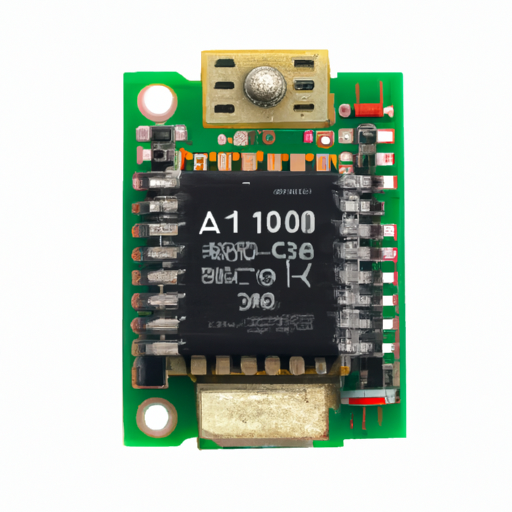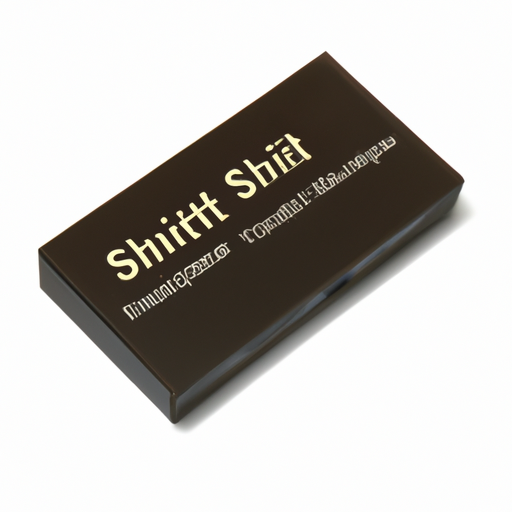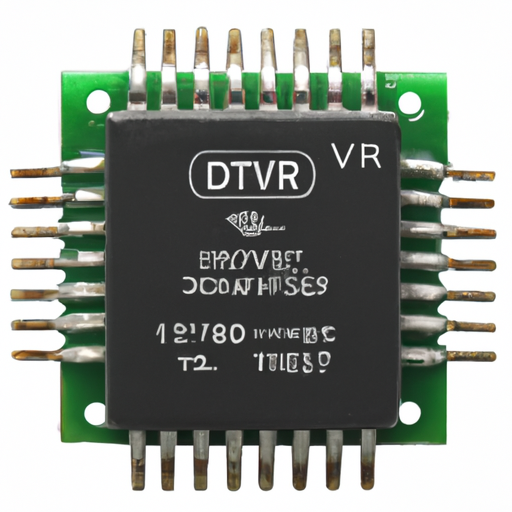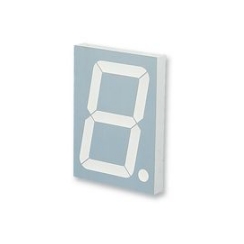What product types are included in resistor rt54?
What Product Types are Included in Resistor RT54?
I. Introduction
Resistors are fundamental components in electronic circuits, serving the crucial role of controlling current flow and voltage levels. Among the various resistor series available in the market, the RT54 series stands out due to its versatility and reliability. This article aims to explore the different product types included in the Resistor RT54 series, their specifications, applications, and significance in various industries.
II. Understanding Resistor RT54
A. Description of RT54 Series
The RT54 series of resistors is characterized by its robust design and wide range of specifications. These resistors are typically made from high-quality materials that ensure durability and consistent performance. The technical specifications of RT54 resistors include a variety of resistance values, power ratings, and tolerances, making them suitable for diverse applications.
Common applications of RT54 resistors include consumer electronics, industrial machinery, and automotive systems. Their ability to maintain performance under varying conditions makes them a preferred choice among engineers and designers.
B. Historical Context and Development
The evolution of resistor technology has been marked by significant advancements in materials and manufacturing processes. The RT54 series emerged as a response to the growing demand for reliable and efficient resistors in modern electronic devices. Its significance in the market can be attributed to its ability to meet the rigorous standards set by various industries, ensuring that electronic devices function optimally.
III. Product Types Included in Resistor RT54
A. Fixed Resistors
1. Definition and Characteristics
Fixed resistors are components with a constant resistance value. They are widely used in electronic circuits to limit current flow and divide voltages. The RT54 series includes a range of fixed resistors that offer precise resistance values, ensuring accurate circuit performance.
2. Common Uses in Circuits
Fixed resistors are commonly used in applications such as voltage dividers, current limiters, and pull-up or pull-down configurations in digital circuits. Their reliability and stability make them essential in both analog and digital electronics.
B. Variable Resistors
1. Definition and Characteristics
Variable resistors, also known as potentiometers or rheostats, allow for adjustable resistance values. This flexibility makes them ideal for applications where fine-tuning of resistance is necessary.
2. Types of Variable Resistors
Potentiometers: These are three-terminal devices that can adjust voltage levels in a circuit. They are commonly used in volume controls, light dimmers, and other applications requiring variable voltage.
Rheostats: Rheostats are two-terminal variable resistors used primarily for adjusting current. They are often found in applications such as motor speed controls and heating elements.
3. Applications in Adjustable Circuits
Variable resistors in the RT54 series are crucial for applications that require user interaction, such as audio equipment, lighting systems, and adjustable power supplies. Their ability to provide precise control over resistance enhances the functionality of electronic devices.
C. Specialty Resistors
1. Overview of Specialty Resistors
Specialty resistors are designed for specific applications that require unique characteristics. The RT54 series includes several types of specialty resistors that cater to niche markets.
2. Types of Specialty Resistors Included in RT54
Thermistors: These temperature-sensitive resistors change resistance with temperature variations. They are widely used in temperature sensing and control applications, such as HVAC systems and automotive temperature monitoring.
Photoresistors: Also known as light-dependent resistors (LDRs), photoresistors change resistance based on light exposure. They are commonly used in light-sensing applications, such as automatic lighting systems and camera exposure controls.
Varistors: Varistors are voltage-dependent resistors that protect circuits from voltage spikes. They are essential in surge protection devices and are widely used in power supply circuits.
3. Applications and Significance in Specific Industries
Specialty resistors in the RT54 series play a vital role in various industries, including automotive, telecommunications, and consumer electronics. Their unique properties enable engineers to design more efficient and reliable systems.
IV. Key Features of RT54 Resistors
A. Material Composition
1. Common Materials Used in RT54 Resistors
The RT54 series is typically made from materials such as carbon film, metal film, and wire-wound constructions. Each material offers distinct advantages in terms of performance, stability, and cost.
2. Impact of Material on Performance
The choice of material significantly affects the resistor's performance characteristics, including temperature stability, noise levels, and tolerance. For instance, metal film resistors are known for their low noise and high precision, making them suitable for sensitive applications.
B. Tolerance and Power Rating
1. Explanation of Tolerance Levels
Tolerance refers to the allowable deviation from the specified resistance value. The RT54 series offers various tolerance levels, allowing designers to select resistors that meet their circuit requirements.
2. Importance of Power Rating in Circuit Design
Power rating indicates the maximum power a resistor can dissipate without failure. Selecting the appropriate power rating is crucial to prevent overheating and ensure the longevity of the resistor in the circuit.
C. Temperature Coefficient
1. Definition and Significance
The temperature coefficient measures how much a resistor's resistance changes with temperature. A low temperature coefficient is desirable for applications requiring stable performance across varying temperatures.
2. How Temperature Affects Resistor Performance
Temperature fluctuations can impact resistor performance, leading to changes in resistance values. Understanding the temperature coefficient is essential for designing reliable circuits that operate under different environmental conditions.
V. Applications of RT54 Resistors
A. Consumer Electronics
1. Role in Everyday Devices
RT54 resistors are integral to the functioning of consumer electronics, including smartphones, televisions, and home appliances. They help regulate current and voltage levels, ensuring devices operate efficiently.
2. Examples of Products Using RT54 Resistors
Products such as audio amplifiers, gaming consoles, and smart home devices utilize RT54 resistors for their reliability and performance.
B. Industrial Applications
1. Use in Manufacturing and Automation
In industrial settings, RT54 resistors are used in automation systems, control panels, and machinery. Their durability and precision make them suitable for demanding environments.
2. Examples of Industrial Equipment
Examples include robotic systems, conveyor belts, and process control equipment, where accurate resistance values are critical for optimal performance.
C. Automotive Industry
1. Importance in Vehicle Electronics
The automotive industry relies heavily on RT54 resistors for various electronic systems, including engine control units, infotainment systems, and safety features.
2. Specific Applications in Automotive Systems
Applications include temperature sensors, lighting controls, and power management systems, where reliable resistor performance is essential for vehicle safety and efficiency.
VI. Comparison with Other Resistor Types
A. Comparison with Standard Resistors
RT54 resistors offer advantages over standard resistors, including better tolerance, stability, and a wider range of specifications. This makes them suitable for more demanding applications.
B. Advantages of RT54 Over Other Series
The RT54 series is known for its high reliability and performance consistency, making it a preferred choice for engineers seeking quality components for their designs.
C. Limitations and Considerations
While RT54 resistors are versatile, designers must consider factors such as cost and availability when selecting components for their projects.
VII. Conclusion
In summary, the RT54 series of resistors encompasses a wide range of product types, including fixed, variable, and specialty resistors. Their unique features and applications make them essential components in various industries, from consumer electronics to automotive systems. As technology continues to evolve, understanding the significance of resistor types like the RT54 will be crucial for engineers and designers aiming to create efficient and reliable electronic devices.
VIII. References
- Electronic Components: A Complete Reference for Engineers and Designers
- Resistor Technology: Understanding the Basics and Applications
- Industry Standards for Resistors: A Guide for Manufacturers and Engineers
This comprehensive overview of the RT54 resistor series highlights its importance in modern electronics, providing valuable insights for anyone involved in electronic design and engineering.







